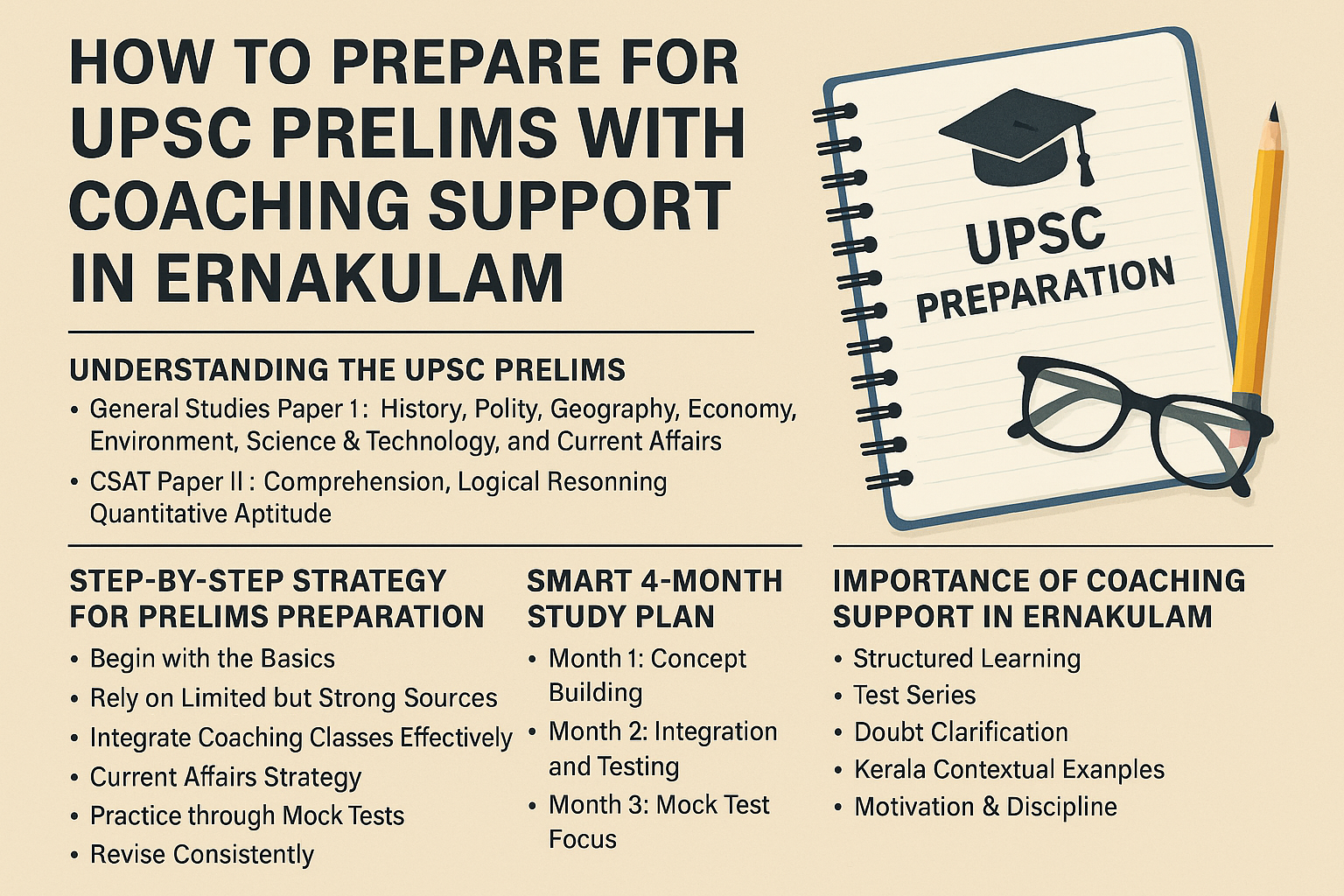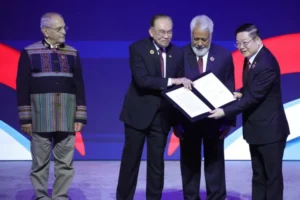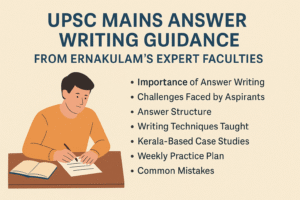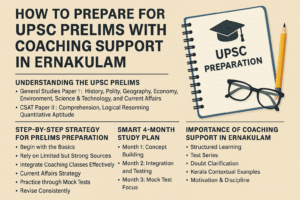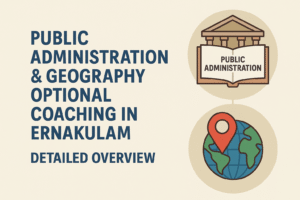Preparing for the UPSC Prelims examination requires a balanced strategy that combines conceptual clarity, regular practice, and test-based learning. For aspirants in Ernakulam, structured coaching support can provide the right guidance, discipline, and personalized feedback necessary to crack the exam.
Understanding the UPSC Prelims
The UPSC Prelims consist of two papers conducted on the same day:
General Studies Paper I (200 marks): Focuses on History, Polity, Geography, Economy, Environment, Science & Technology, and Current Affairs.
CSAT Paper II (200 marks): Tests comprehension, logical reasoning, and quantitative aptitude. This paper is qualifying in nature, requiring 33% marks to pass.
The goal should be to score 110+ marks in GS Paper I consistently in mock tests to safely clear the cut-off.
Step-by-Step Strategy for Prelims Preparation
1. Begin with the Basics
Start with NCERTs (Class VI–XII) to build a foundation. Coaching institutes in Ernakulam provide guided NCERT summary classes and topic-wise handouts to help students cover fundamentals quickly.
2. Rely on Limited but Strong Sources
Use one standard book per subject and supplement it with your coaching material. Over-reading multiple sources can lead to confusion.
Recommended Sources:
Polity: Laxmikanth + class notes
History: Spectrum for Modern India + NCERTs for Ancient and Medieval
Geography: GC Leong + NCERTs
Economy: Ramesh Singh or Sanjeev Verma + class summaries
Environment: Shankar IAS + Kerala environmental examples
Science & Tech: Coaching compilations and current affairs updates
3. Integrate Coaching Classes Effectively
Attend coaching sessions regularly and revise class notes within 24 hours. The classroom lectures help decode UPSC trends, provide topic-wise test exposure, and cover high-yield areas like Environment, Polity, and Economy in detail.
4. Current Affairs Strategy
Focus on 8–12 months of reliable current affairs. Read one monthly magazine and revise it regularly. Coaching institutes in Ernakulam conduct current affairs classes focusing on topics relevant to Kerala and national governance.
5. Practice through Mock Tests
Start taking sectional tests after one month of study. By the third month, switch to full-length mock tests to build stamina and improve time management.
Mock Test Tips:
Attempt 80–90 questions with accuracy above 70%.
Practice on OMR sheets to simulate real exam conditions.
Review every test and maintain an error log to identify weak areas.
6. Revise Consistently
Follow a three-stage revision cycle:
Revise coaching notes and NCERTs.
Attempt subject-wise tests and analyze mistakes.
Consolidate your notes into short “micro-revision sheets” for final review.
Smart 4-Month Study Plan
Month 1: Concept Building
Cover NCERTs and core texts.
Practice 25–30 MCQs daily.
Attend foundation-level coaching classes.
Month 2: Integration and Testing
Combine static subjects with current affairs.
Attempt 2 sectional tests weekly.
Revise Economy, Polity, and Environment together.
Month 3: Mock Test Focus
Take 3–4 full-length tests every week.
Analyze performance after each test.
Revise maps, facts, and current affairs compilations.
Month 4: Final Sprint
Focus only on revision and high-yield topics.
Attempt alternate-day full tests.
Practice CSAT regularly to avoid qualifying risk.
Daily Study Routine
Morning (6:30 AM – 8:30 AM): Read Polity or Economy concepts.
Forenoon (10:00 AM – 12:00 PM): Practice 30 MCQs and review mistakes.
Afternoon (2:00 PM – 4:00 PM): Study Geography or Environment with maps.
Evening (6:30 PM – 8:00 PM): Current Affairs and Revision.
Night (8:15 PM – 9:00 PM): CSAT or comprehension practice.
CSAT Preparation Strategy
Although qualifying, CSAT has become increasingly challenging. Include it in your routine early.
Key Areas to Focus On:
Quantitative Aptitude: Ratio, Percentage, Averages, Time-Speed-Distance, Work.
Reasoning: Syllogism, Blood Relations, Series, and Puzzles.
Comprehension: Daily practice of 2–3 passages.
Data Interpretation: Tables, Charts, and Case Studies.
Solve one CSAT paper every week and analyze mistakes.
Importance of Coaching Support in Ernakulam
Structured Learning: Institutes follow a subject-wise plan to complete the Prelims syllabus systematically.
Test Series: Regular weekly and full-length tests simulate real exam pressure.
Doubt Clarification: One-on-one mentorship sessions help resolve tricky concepts.
Kerala Contextual Examples: Coaching integrates Kerala-related topics in Environment, Economy, and Governance.
Motivation & Discipline: Classroom engagement ensures consistency, reducing burnout.
Prelims-Specific Kerala Focus Areas
Western Ghats ecology and biodiversity.
Ramsar sites: Vembanad, Ashtamudi, Sasthamkotta.
Disaster management (Floods, Landslides).
Kerala’s model of decentralised governance.
Fisheries, Blue Economy, and Port development.
Renewable energy initiatives and tourism geography.
Common Mistakes to Avoid
Relying on too many books or current affairs sources.
Ignoring CSAT until the last minute.
Focusing on memorization over understanding.
Taking tests without reviewing mistakes.
Lack of time management during the final month.
Final 30-Day Strategy
Revise micro notes every day.
Solve at least 5–6 full-length mock papers.
Focus on Government schemes, environment, and mapping.
Avoid new sources; revise the same material multiple times.
Sleep well and maintain daily health routines.
Conclusion
Preparing for the UPSC Prelims from Ernakulam with proper coaching guidance ensures a structured and effective approach. Coaching institutes provide the framework—regular classes, mock tests, and expert feedback—while personal discipline, revision, and consistent practice complete the process. With a balance of classroom learning and smart self-study, aspirants can confidently aim to clear the Prelims and move one step closer to their dream of joining the Civil Services.

